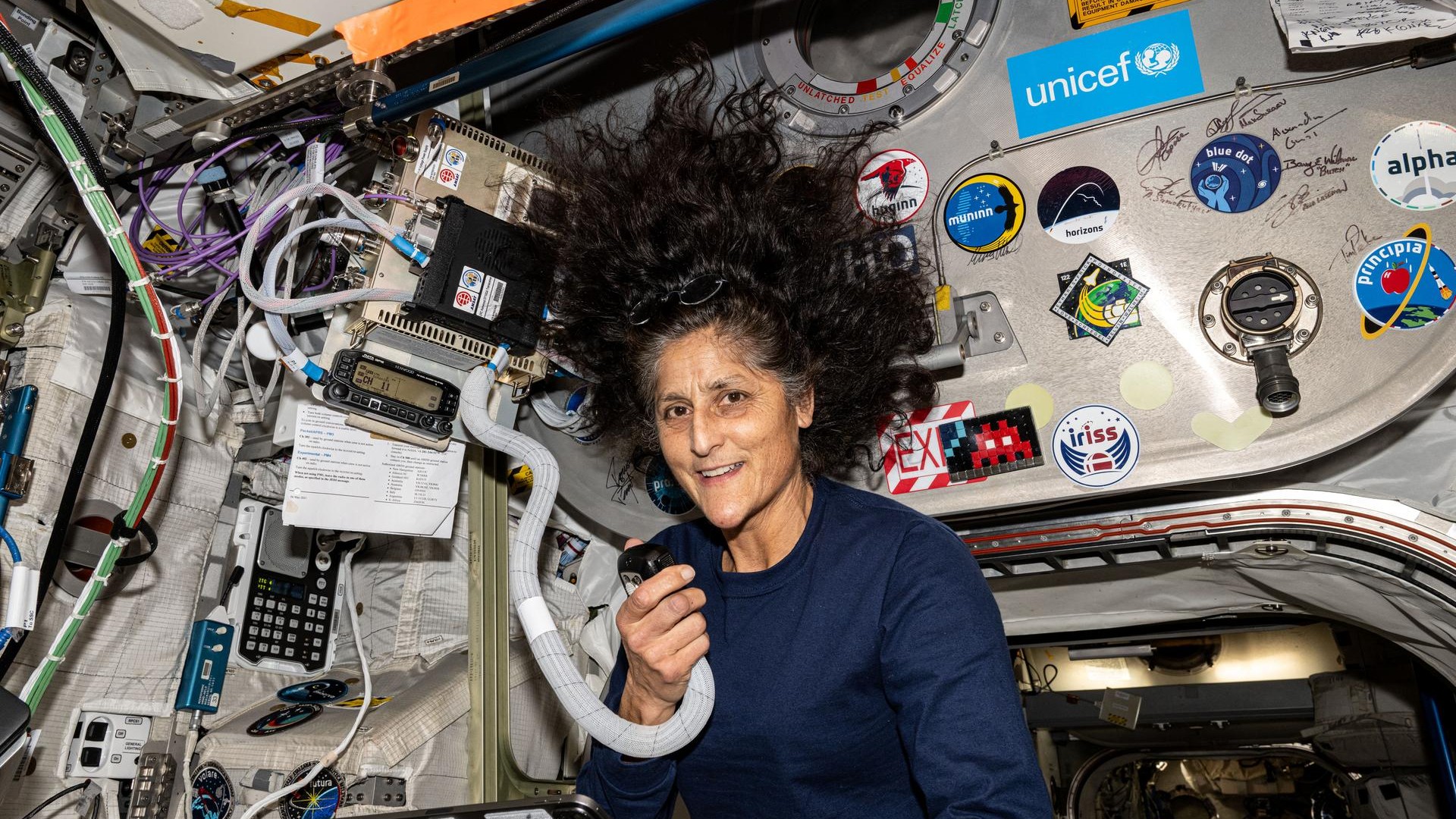July 20, 1969: 'One Small Step for Man...'
With the 50th anniversary of spaceflight coming on Oct. 4 — the day the former Soviet Union launched Sputnik 1 into orbit — Space News has been taking a look back at major milestones over the past five decades. Here, Clinton Parks highlights NASA's historic Apollo 11 lunar mission, which landed the first humans on the moon on 38 years ago today:
WASHINGTON — Six years after President John F. Kennedy's assassination, the Apollo 11 crew landed on the moon, fulfilling his promise to put an American there by the end of the decade and return him safely to Earth.
More than 500 million people from around the world watched as commander Neil Armstrong and lunar module pilot Edwin "Buzz" Aldrin exited the Eagle lunar module and stepped onto the surface of the moon. In those moments Armstrong's verbal miscue — "That's one small step for man; one giant leap for mankind" — were ingrained in the American psyche.
Apollo 11, with Aldrin, Armstrong and command module commander Michael Collins aboard, was launched by a Saturn 5 rocket July 16 as a multitude of dignitaries and media looked on. Seventy-six hours after liftoff the crew was in lunar orbit, and 24 hours after that, the Eagle detached from the Columbia command module.
Collins remained on Columbia. Concerned as Eagle descended onto a football field-sized crater, Armstrong manually steered the lander away and touched down safely in another part of the Sea of Tranquility.
During their 2.5-hour moon walk, Aldrin and Armstrong planted an American flag, ran scientific tests and collected 21.6 kilograms of rock and soil. They carried communications and life support equipment that weighed only 6.4 kilograms on the moon's lesser gravity.
The pair returned aboard Eagle and rejoined Columbia after about 22 hours on the moon.
Breaking space news, the latest updates on rocket launches, skywatching events and more!
Apollo 11 safely splashed down in the Pacific Ocean July 24, 434 kilometers away from its original landing site to avoid a storm.
After being quarantined, the astronauts were celebrated with a plethora of parades and personal appearances.
Beyond the merits of its technical triumphs, the lunar landing was an achievement of management and logistics. Overall, the Apollo project was one of the United States' most expensive endeavors costing $25.4 billion. It compares to the Manhattan Project and the digging of the Panama Canal for scope. But the true significance of the first moon landing was that it gave a nation dredged in the midst of war abroad and sociopolitical upheaval at home a reason to be proud.
Kennedy's commitment to the moon landing was driven by the desire to alter the perception of the United States being second to the Soviet Union in the space race. But changing that perception also began to change the reality of the United States, not only as the leader in space, but in science in general.
Based in Washington DC, Clinton is a former freelance science writer for Space.com covering NASA History and Space Exploration. His work has appeared online and in print for Slate, Science, AAAS, the Society for Neuroscience, the American Chemical Society, and the American Physical Society. From October 2006 to May 2015, he acted as a staff writer and web producer for SpaceNews creating "This Week In Space History." He's currently a Content Specialist for National Geographic.
